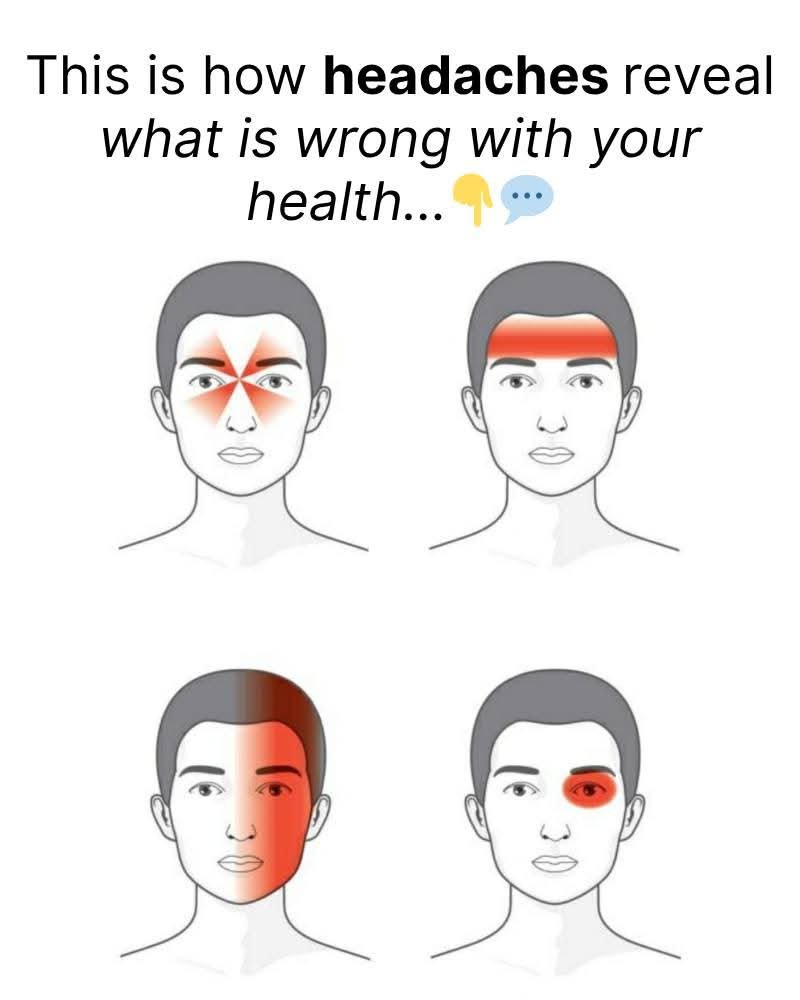
A headache is not just pain that comes and goes — it can be your body’s way of warning you about deeper health issues. Many people quickly take painkillers to silence the discomfort, but understanding the type of headache you’re experiencing can reveal what is happening inside your body.
Tension Headaches
This is the most common type. It feels like a tight band wrapped around your head or pressure on both sides. Often caused by stress, anxiety, lack of sleep, or poor posture, tension headaches are your body’s way of saying you need rest and relaxation.
Migraines
Migraines are much more intense than regular headaches. They come with throbbing pain, nausea, and sensitivity to light or sound. Migraines often point to hormonal changes, dehydration, or certain food triggers. For some, they may even be a warning sign of poor blood circulation or neurological imbalance.
Cluster Headaches
These are rare but extremely painful. Cluster headaches usually happen around one eye, with sharp, burning pain. They often occur in cycles, meaning they come back at the same time of day or season. This type may indicate problems with the nervous system or blood vessels.
Sinus Headaches
If your forehead, cheeks, or nose feel heavy and painful, it could be a sinus headache. This often means you have an infection, allergies, or sinus inflammation. Many people confuse these with migraines, but the pressure in your face is the real giveaway.
Dehydration Headaches
Sometimes the answer is simple — your body just needs more water. When you don’t drink enough fluids, your brain temporarily contracts, pulling away from the skull and causing pain. A glass of water can sometimes cure this better than any pill.
Cervicogenic Headaches
Pain starting from the neck and moving to the head may not be a typical headache at all. It usually signals problems with the spine, nerves, or muscles in the neck. Poor posture, long hours at the computer, or sleeping in the wrong position often cause this.
When to Seek Help
Most headaches are not dangerous, but if you experience sudden, severe pain, changes in vision, confusion, or weakness in your body, seek medical attention immediately. These can be signs of more serious conditions like stroke, high blood pressure, or brain issues.
Final Thought
Headaches should never be ignored. They are not just random pains — they are messages from your body. By paying attention to the type, frequency, and triggers, you can better understand your health and take steps toward prevention and healing.

